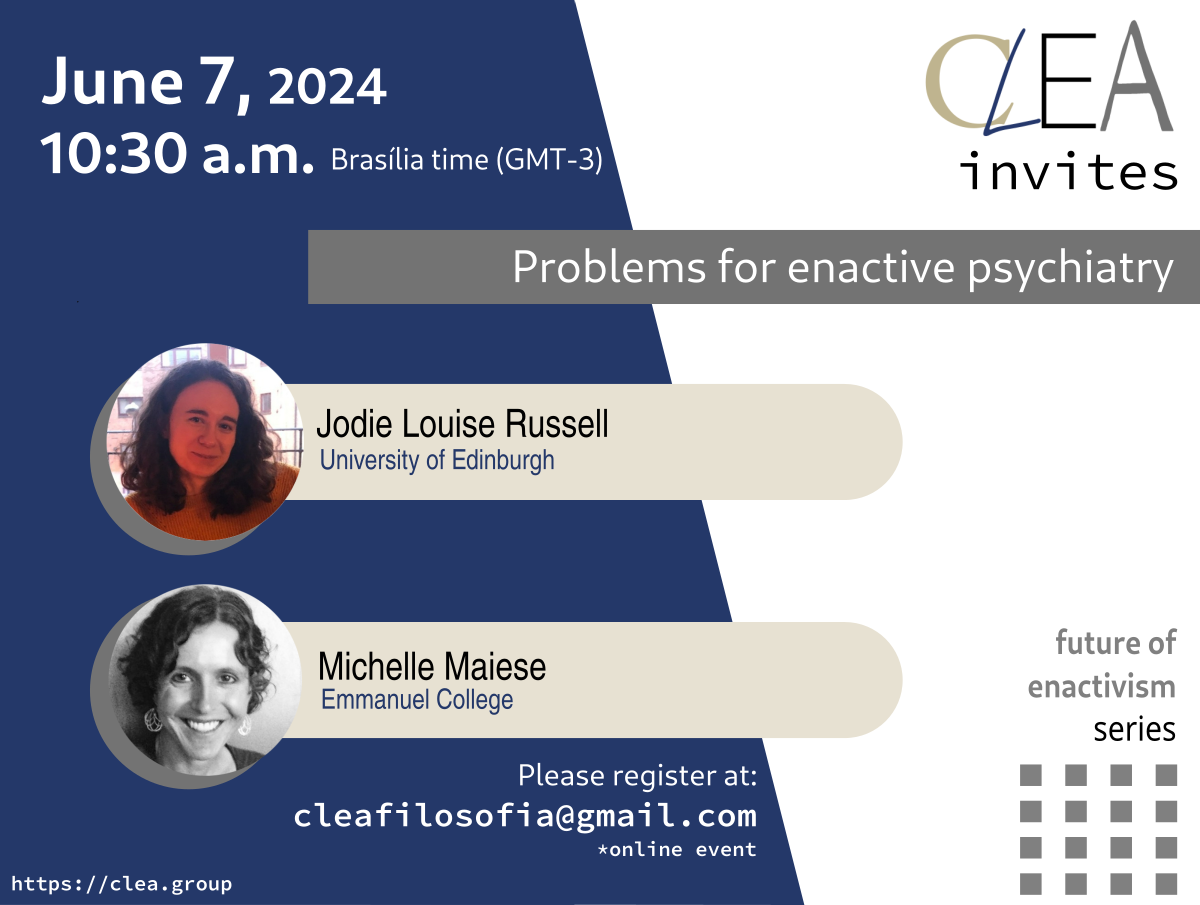Second session of the online series “The Future of Enactivism”, in which researchers from all over the world discuss key issues and problems within the enactivist research program.
The session was held on June 07 2024, and featured Jodie Russell (Edinburgh) and Michelle Maiese (Emmanuel College) discussing potential problems for enactive psychiatry.
Series
The Future of Enactivism
Speaker
Jodie Russell (University of Edinburgh)
Commentator
Michelle Maiese (Emmanuel College)
Paper
Problems for enactive psychiatry as a practical framework
Abstract
In recent years, autopoietic enactivism has been used to address persistent conceptual problems in psychiatry, such as the problem of demarcating disorder, that other models thus far have failed to overcome. There appear to be three main enactive accounts of psychopathology with subtle, although not incompatible, differences: Maiese characterizes disorder as distinct disruptions in autonomy and agency; Nielsen characterizes disorder as behaviors that relevantly conflict with the functional norms of an individual; De Haan emphasizes patterns of disordered sense-making, that are transformed through the existential dimension. Given that these accounts are intended to provide not only an ontologically richer account of psychopathology but also reduce the stigma experienced by individuals with mental disorders by accounting for lived experience, a critical analysis of these approaches is needed. I will provide a problematization of enactive accounts of mental disorder, showing that this particular framework does not, as it stands, necessarily reduce the harm and suffering experienced by individuals with mental disorder because of its ontological openness; enactivism leaves much to be interpreted and applied by the clinician (or patient) such that practical and ethical problems in its use arise.
DOI
https://doi.org/10.1080/09515089.2023.2174423
